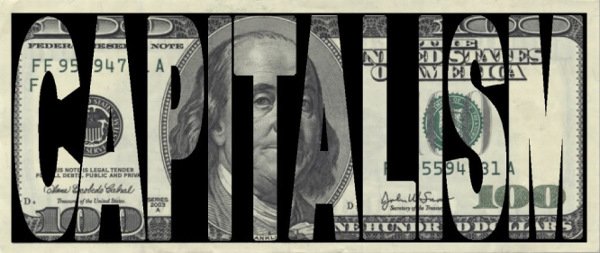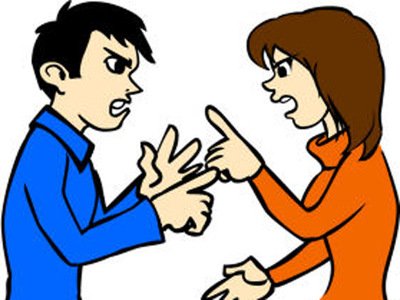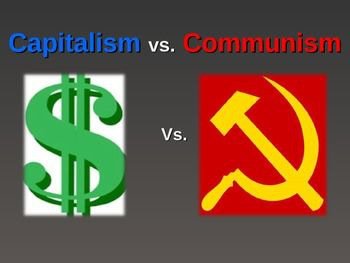
Those who praise “capitalism,” and those who condemn “capitalism,” are rarely talking about the same thing. As such, listening to such arguments can start to sound like this:
“If you have a mosquito problem at your place, you need a bat.”
“That’s stupid! There’s no way you could hit a mosquito with a bat!”
When people are arguing without being clear about the meanings of the words they are using, the conversation often turns into a pointless mess. And when people have different opinions about what some word means, things often devolves into an argument about semantics, and they never get around to actually debating ideas and concepts.

So I will include a general description of what pro-“capitalism” and anti-“capitalism” people mean when they use the term, but then skip to the underlying principles that matter.
“Capitalism” in the good sense (in the sense I learned it) describes human interaction—specifically “economic” interaction, where people trade goods and services with each other—that is free from “government” interference. In that usage, the term is synonymous with “the free market,” which is just a description of people interacting on a voluntary basis. Using that definition, pure “capitalism” also means that “government” owns nothing, and that only private individuals can own anything.
In fact, since every “government” forcibly interferes with trade to one degree or another, via “taxation” and “regulation,” then pure “capitalism” would pretty much require the complete absence of a ruling class. Also, if we are using this definition of “capitalism,” then the term “anarcho-capitalism” is actually redundant, since it literally means “a society without a ruling class … in which trade happens without the interference of a ruling class.”

When anti-“capitalists” describe what they think the term means, it can sometimes be vague and nonspecific, and more emotional than intellectual. They often mention wealth being in the hands of a few people, with giant monopolies owned and run by the “super-rich,” who do little or no work but reap massive profits while the “workers” are “exploited.” This is sometimes described as “wage slavery,” based on the argument that for many people the only choices are working for an employer or being homeless and starving, making the arrangement involuntary, unjust, unfair and illegitimate.

Obviously these two definitions are drastically different, in both generals and specifics.
The first obvious conflict between these two views of what “capitalism” means is that the intolerable situation described by “anti-capitalists,” to the extent it does exist, exists entirely because of “government” power (even if that power is used on behalf of, and at the behest of, huge corporations). The reason people cannot simply wander off to some piece of land that is unoccupied and unused, and homestead a house, a farm, a community, and so on, is because long ago “government” claimed to own massive amounts of land based on nothing but fiat decree. ("Hmmm, this continent looks nice. We declare it to be ours.")
Now anyone attempting to go live off the land—whether on “government” land or on land that “government” claimed ownership of and then gave or sold it to someone else—will be considered a trespasser, and will be forcibly evicted by armed agents of the state. And even if someone manages to convince the state that he owns a piece of land, various levels of “government” will then demand rent (in the form of “property taxes”) from anyone residing within their political territory, and will forcibly evict any who do not pay tribute to “government.” This essentially means that "government" still owns all the land, because they said so.
Obviously none of this fits within the definition of “capitalism” that means a system of trade without “government” interference. What “anti-capitalists” call “capitalism,” “pro-capitalists” call “state capitalism” (which is a bit of an oxymoron) or “corporate fascism” (with fascism meaning a mingling of state and industry). Anti-“capitalists” condemn the current situation in the United States as an example of how bad “capitalism” is, while people who believe in the good kind of “capitalism” (economic trade without interference from a ruling class) argue that the current situation is not at all a free market, and has little or nothing in common with true capitalism, since there are countless ways in which the state interferes with and controls the economy, by way of regulation, taxation, enforced monopolies, fraudulent fiat currency, bogus banking practices, and so on.

So for the most part, pro- and anti-“capitalism” folk argue past each other, because they’re not talking about the same thing. People will never agree on whether capitalism is good or bad if they can’t even agree on what the term describes. However, if we dig below the semantics, there are some important fundamental concepts. Among both pro- and anti-“capitalism” people, most seem to agree that the opposite of capitalism is communism. (There is, of course, also some argument over just what that term means, too.)
In the following articles in this series I will address several basic disagreements between “capitalists” and “communists,” including:
1 - Collective vs. private ownership, as applied to land, resources, products, etc.
2 - Whether money is, in and of itself, good or bad.
3 - Whether hierarchy and financial “inequality” are inherently bad.
4 - And finally, whether communists actually believe what they say they believe.

